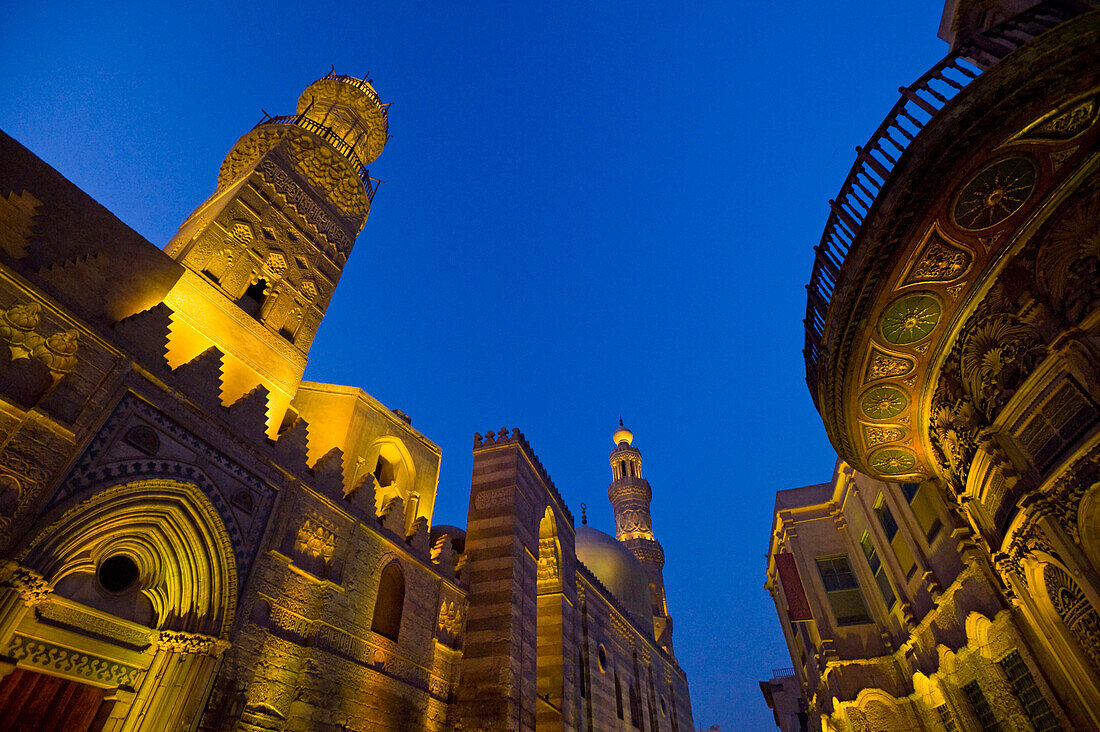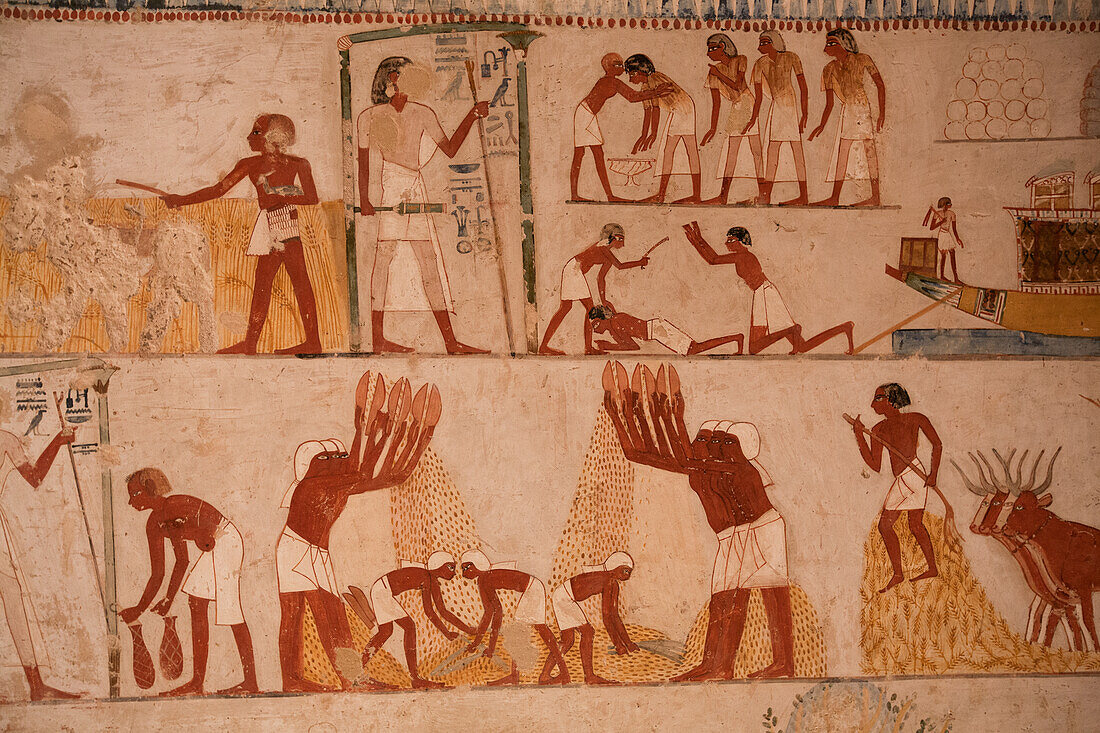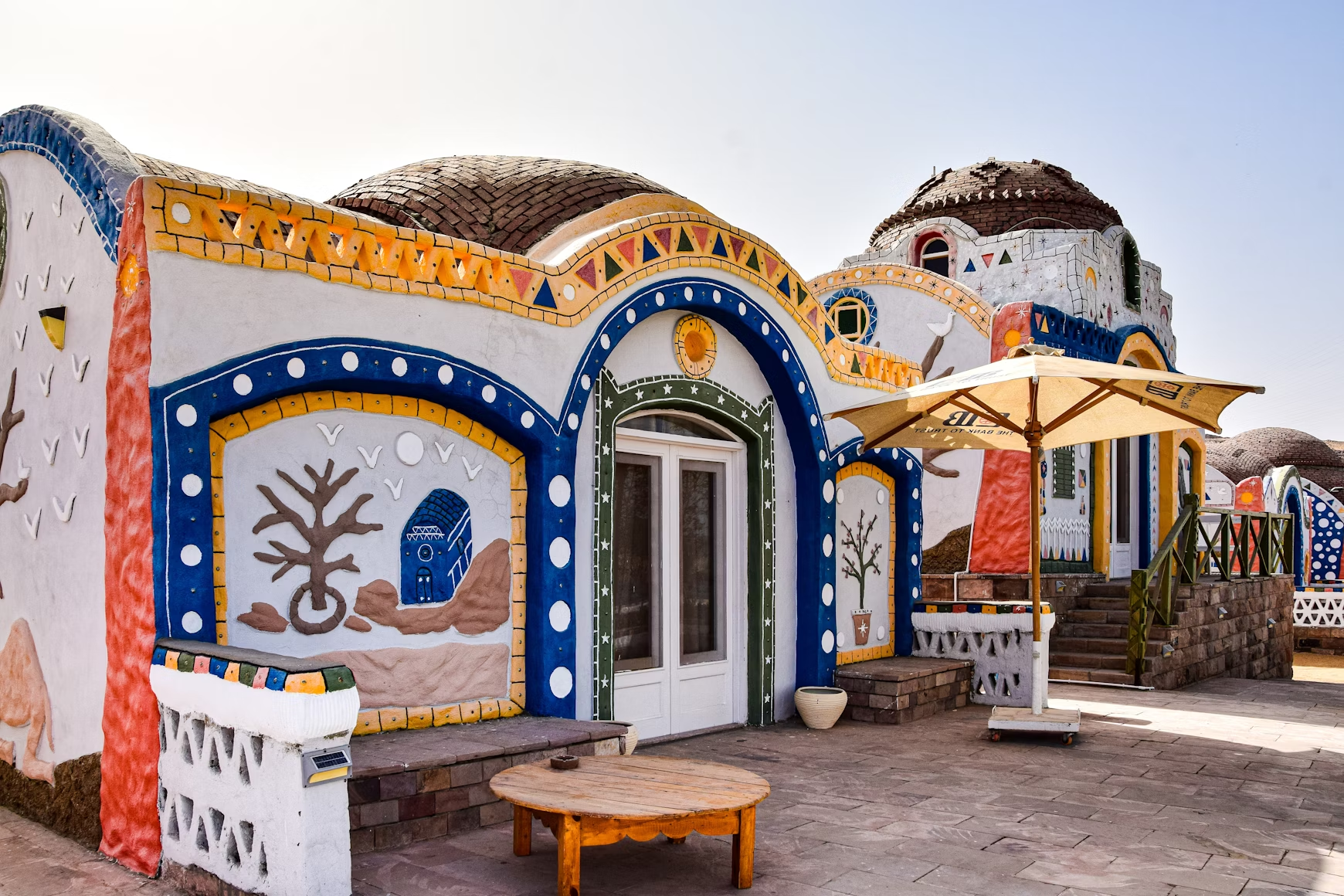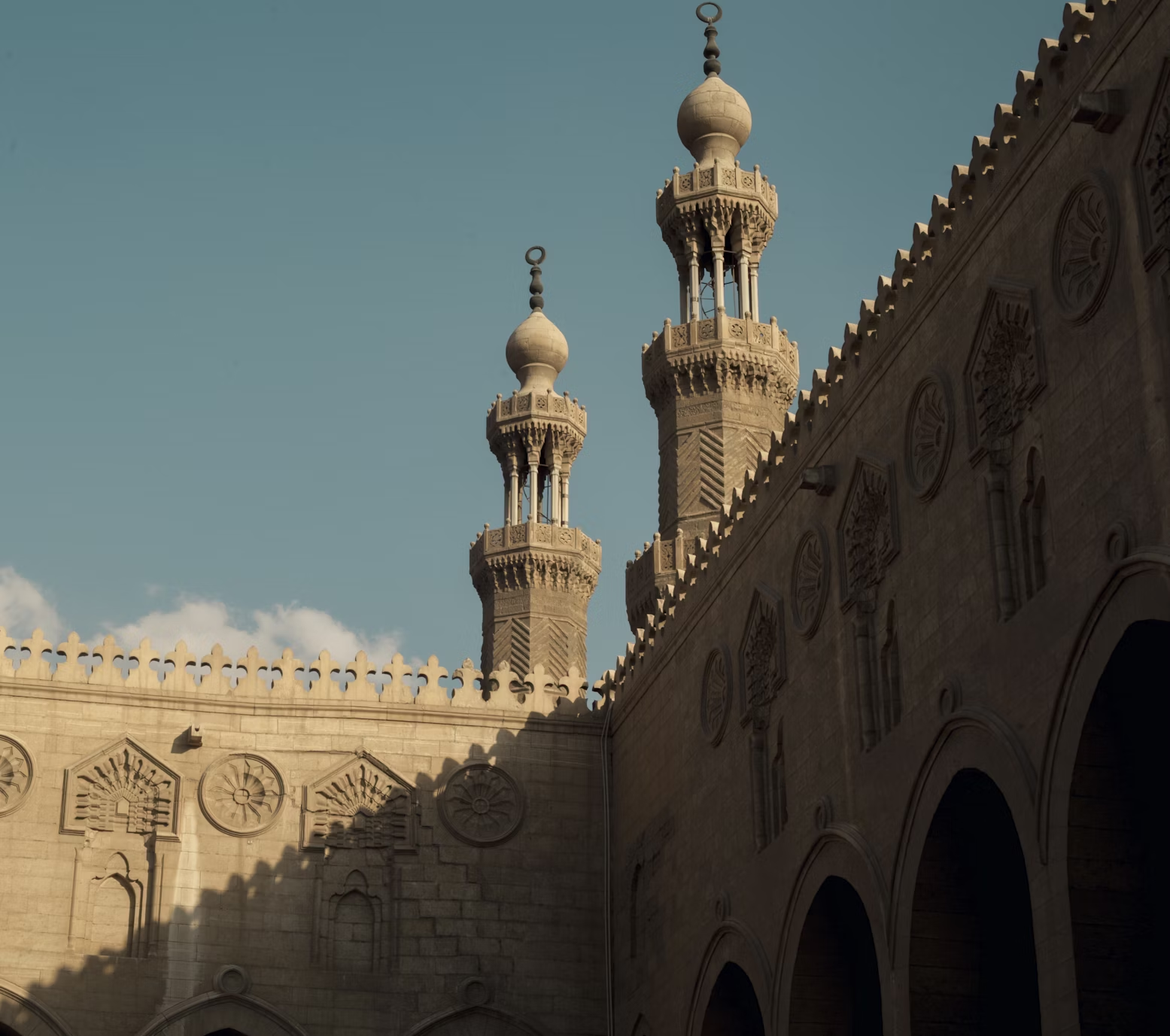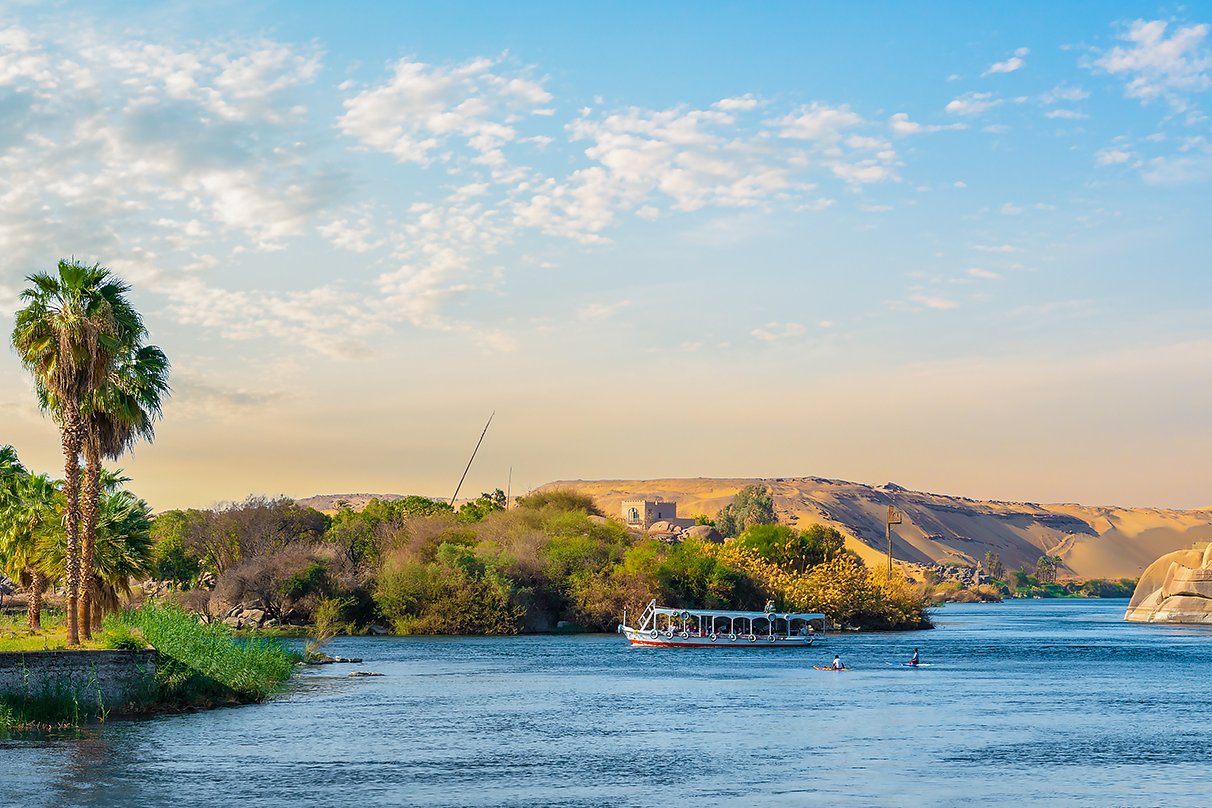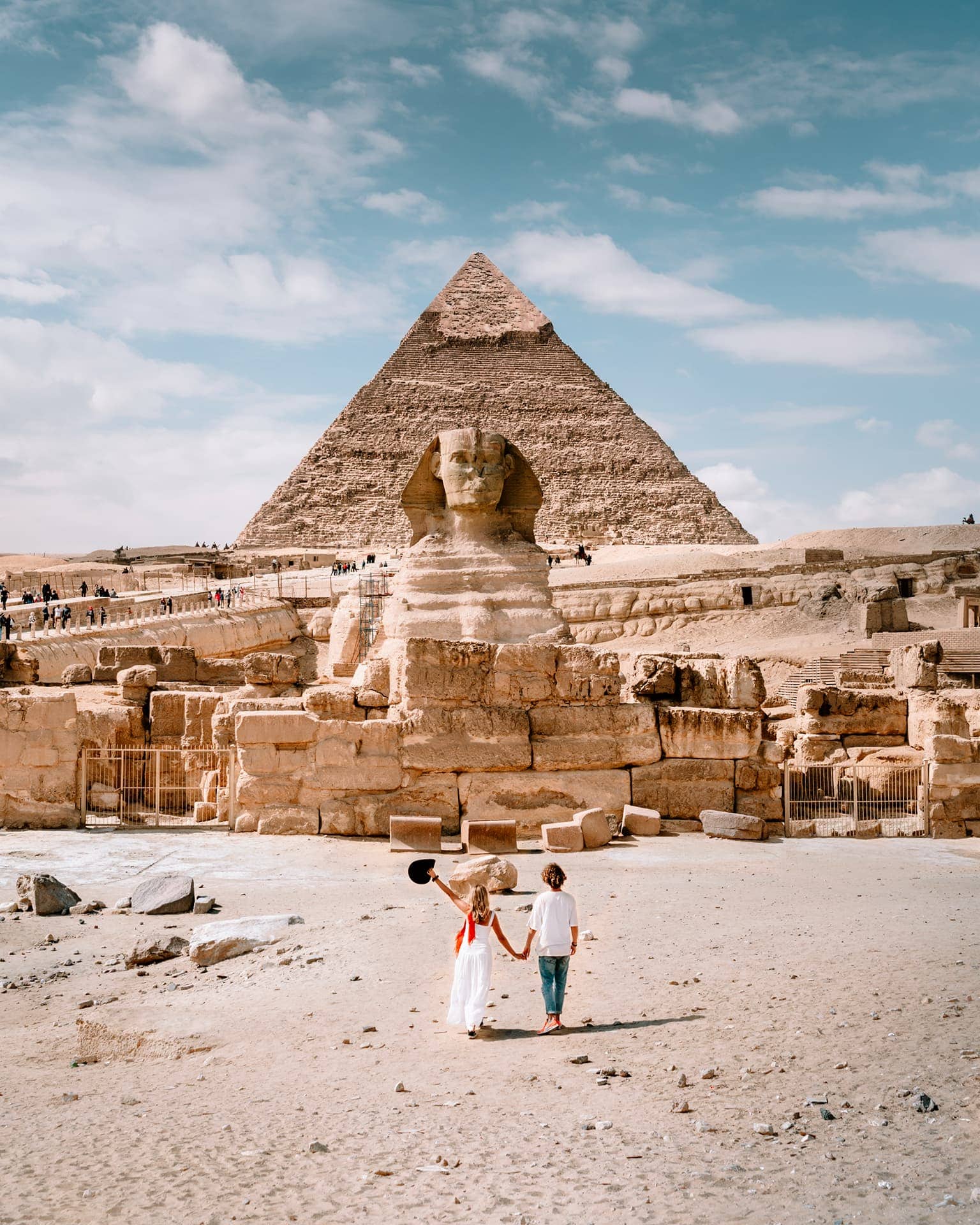The Heart of Heritage in Islamic Cairo
Islamic Cairo constitutes the heart of Egypt, Islamic in both culture and history. For those exploring Egypt tours, its landmarks include some of the most familiar places in all of Cairo: the Mosque of Ibn Tulun, the Sultan Hassan Mosque, and the Pearl of Al-Azhar University. It is a source of evidence in its buildings and within its rich Islamic and historical architecture, showcasing the grandeur and complexity of its design masterpieces.
The area of Islamic Cairo offers itself to be walked as time travel, with its very features capturing architectural styles from the very first Islamic era to the Mamluk period, and the Turkish Ottoman age. Each corner of that section holds history within its ancient walls, with decorative inscriptions, along with its dominating domes lining the skyline. A Cairo Islamic tour through this district highlights its significance as a residential cultural hub, shaped by the historical Islamic influence that has defined Egypt over the centuries.
The Mosques of Islamic Cairo
Generally, the most dazzling of all mosques would be the ancient mosques of Islamic Cairo, with the Islamic Cairo mosques being some of the most beautiful in the Islamic world. Sultan Hassan Mosque, built during the 14th century, is the most magnificent of all the mosques in Cairo. Most notable for its architectural splendor, the mosque features an enormous hall for prayers, with intricate carvings; it is a must-see attraction for tourists with a keen interest in Islamic architecture.
For instance, the Sultan Hassan is not the only mosque that subscribes to the concept of religious and architectural diversity in Islamic Cairo; other mosques like that of Muhammad Ali and Al-Hakim bear witness to it as well. The mosques themselves not only act as places of worship but also as monuments to the artistic, cultural, and religious practices that distinguished the Islamic period in Egypt. Visiting such mosques is often a highlight of Cairo sightseeing tours, offering a deeper understanding of Islamic spirituality, art, and history.
Souks and Markets of Islamic Cairo
No trip would ever be complete for a person if they did not visit the souks and get lost in the bustling streets of Islamic Cairo. For those on an Islamic Cairo walking tour, the most famous of these markets is, of course, the Khan El Khalili Bazaar, as old as it is one of the most active markets in the Middle East. It is a fine maze within narrow lanes crammed with shops, ranging from spices and jewelry to antiques and souvenirs, giving every sensory experience imaginable.
The markets of Islamic Cairo certainly encourage spending some time soaking up the local culture. These vibrant sounds, smells, and sights make up the very essence of the magic that this area has to offer. There are active markets, many of which date back centuries, where atmospheric conditions have largely changed, giving a perspective into the past yet molding the view of Cairo's modern life.
Cultural Importance in Islamic Cairo
Islamic Cairo is the historical heart and a center of learning and culture. One can visit Al-Azhar University, established more than one thousand years ago, as part of an Islamic Cairo tour. It is counted among the oldest and greatest centers of Islamic scholarship across the world. Like the Al-Azhar Mosque, its surroundings include buildings, making the destination an Islamic point and attracting many people around the world to study and research.
Islamic Cairo is another place where it demonstrates art and craftsmanship in Islam. Many buildings and shops within the district exhibit or sell impressive calligraphy, beautiful woodwork, and fine textiles. This cultural heritage is an integral part of Cairo's identity, combining learning, art, and spirituality into a living, breathing city.
Exploring Historic Landmarks in Islamic Cairo
Islamic Cairo has a lot more historical monuments that tell of the passage of Islamic culture and architecture through time. Among the notable Islamic Cairo attractions is the 12th-century citadel of Saladin, a fortress from which one can appreciate the beauty of Cairo while getting a peek at the military past of the area. Then there's the adjoining Mosque of Muhammad Ali, whose Ottoman-style architecture adds to the grandeur of the Citadel.
Other historic monuments such as the Bab Zuweila Gate and the Al-Muizz Street serve as perfect spots for anyone who has a history oozing from their every pore. The foremost realistic description of Al-Muizz Street is that it is like walking out of time; these buildings, courtyards, and alleys tell so much about the rich Islamic past of the city. The historical monuments of Islamic Cairo give tourists an entirely immersive experience of Egypt's Islamic heritage.
The dynamic, historically vibrant precinct of Islamic Cairo immerses you in the fullness of Egyptian Islamic life, from architecture to mosques, to markets, to overall culture. It allows travel to experience how Islamic civilization has evolved in art, religion, and daily life. Its fascinating landmarks, bedecked with unique ambiance and historical depth, comprise that part which is essential to Cairo's identity, the essence of any visit seeking to delve into the hearts of Egypt's Islamic heritage.
 English
English
